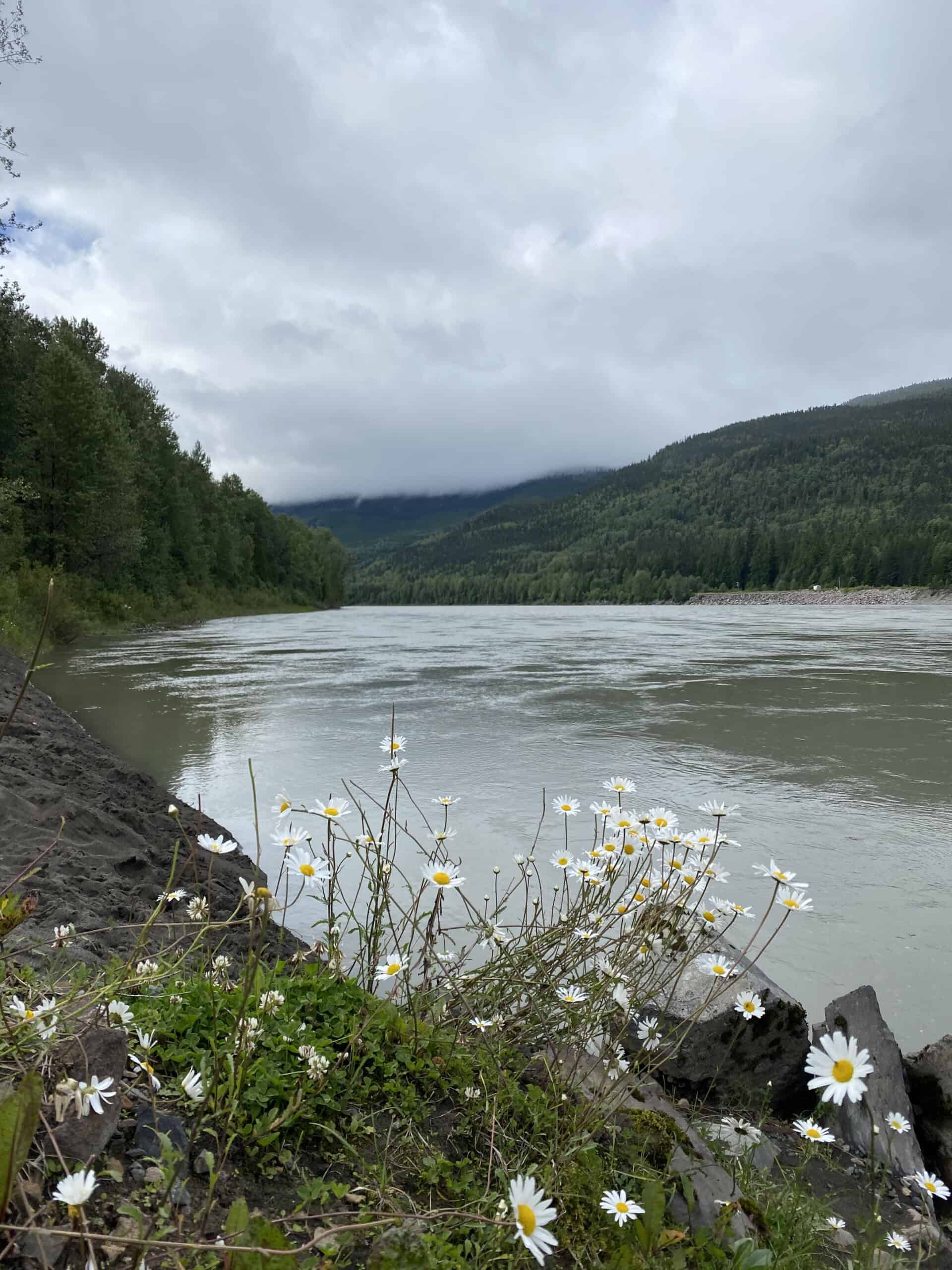- About
- Research
-
-
- Special Reports & Features
- Pretendians and Publications: The Problem and Solutions to Redface Research
- Pinasunniq: Reflections on a Northern Indigenous Economy
- From Risk to Resilience: Indigenous Alternatives to Climate Risk Assessment in Canada
- Twenty-Five Years of Gladue: Indigenous ‘Over-Incarceration’ & the Failure of the Criminal Justice System on the Grand River
- Calls to Action Accountability: A 2023 Status Update on Reconciliation
- Data Colonialism in Canada’s Chemical Valley
- Bad Forecast: The Illusion of Indigenous Inclusion and Representation in Climate Adaptation Plans in Canada
- Indigenous Food Sovereignty in Ontario: A Study of Exclusion at the Ministry of Agriculture, Food & Rural Affairs
- Indigenous Land-Based Education in Theory & Practice
- Between Membership & Belonging: Life Under Section 10 of the Indian Act
- Redwashing Extraction: Indigenous Relations at Canada’s Big Five Banks
- Treaty Interpretation in the Age of Restoule
- A Culture of Exploitation: “Reconciliation” and the Institutions of Canadian Art
- Bill C-92: An Act respecting First Nations, Inuit, and Métis Children, Youth and Families
- COVID-19, the Numbered Treaties & the Politics of Life
- The Rise of the First Nations Land Management Regime: A Critical Analysis
- The UN Declaration on the Rights of Indigenous Peoples in Canada: Lessons from B.C.
- View all reports.
- Special Reports & Features
-
-
- Yellowhead School
- The Treaty Map
- LIBRARY
- Submissions
- Donate
“When the government of Canada presented itself at our doors it found us at peace. It found that the Métis people of the North-West … had a government of its own, free, peaceful, well-functioning, contributing to the work of civilization. … It was a government with an organized constitution whose junction was more legitimate and worthy of respect, because it was exercised over a country that belonged to it.” – Louis Riel
IN RECENT INTERVIEWS, Métis Nation of British Columbia (MNBC) Director Patrick Harriott has been citing this 1885 Louis Riel quote without irony.
But Mr. Harriott’s comparison between MNBC’s recent declaration of self-government and the formation of the Métis Provisional Government in 1869 is painfully strained. There are no doubt comparisons to be drawn, but not the ones that MNBC would like us to believe.
The formation of the Métis Provisional Government in 1869, as well as associated Métis armed resistance, and eventual negotiations with the Crown, led to Manitoba joining the Canadian federation as its fifth province. The Manitoba Act, which formalized this confederation from the perspective of the Crown, is thought by many Métis to be our treaty with Canada.
While this series of events is celebrated by Métis who proudly hold Louis Riel up as the first premier of the Province of Manitoba, not all look upon him or our people’s actions fondly.
There continues to be tension between First Nations and Métis for bringing Manitoba into confederation without the former’s consent. This tension exists despite the deep legal and kinship relationships that mediate co-existence between our respective families and communities in the Red River Valley — the heart of the Métis Homeland — and the soil from which our beautiful Métis Nation sprouted.
One hundred and fifty-two years later and a few provinces west, there is a new source of tension.
B.C.’s “Largest Indigenous Nation”?
MNBC has recently come under fire from various First Nations whose territories fall entirely or predominantly within what is now B.C. This has been triggered primarily by MNBC’s deeply problematic report, “A Tale of Two Nations,” in which MNBC asserts that the Métis have constitutionally protected Aboriginal rights to lands and resources in B.C. west of the Rocky Mountains.
This growing and justified resistance from First Nations has been manifest, in part, in a public letter of opposition from the Secwepemc Nation Tribal Council, a strong rebuke from the British Columbia Assembly of First Nations via Resolution 12/2021, and the Union of B.C. Indian Chiefs’ Chiefs Council who, via Resolution no. 2021-25, rejected “A Tale of Two Nations” as “factually and legally inaccurate,” and admonished MNBC for making “unfounded assertions of Métis rights [west of the Rocky Mountains] that would infringe or interfere with the original, inherent Indigenous title and rights holders in B.C..”
Following this outrage, MNBC held its (virtual) Annual General Meeting. It was an opportunity for MNBC to reject its problematic positions and chart a new path for Métis who have settled west of the Rocky Mountains — perhaps one that honours and strengthens the laws and legal traditions of First Nations, upholds our own, and provides us with legally and morally defensible access to resources on First Nations lands and within their waters based upon consent and reciprocity. That didn’t happen, though. Instead, MNBC chose to double down on their shameful behaviour and continued in their attempt to exercise jurisdiction over a country that most certainly does not belong to us. Several resolutions were passed by MNBC members at the Annual General Meeting, including Resolution #6 – MNBC’s Self-Government Declaration (Resolution #6).
In MNBC’s recent media blitz related to Resolution #6, Mr. Harriot has proclaimed that MNBC is B.C.’s “largest individual Indigenous nation” — a claim that is not only an affront to the broader Métis Nation, but an insult to all First Nations west of the Rocky Mountains.
MNBC is not, and never has been, a nation — nor have any of the other four provincial Métis governments or the Métis National Council. MNBC is a representative body that advocates on behalf of a largely arbitrary group of Métis who reside within the arbitrary colonial borders of B.C.
To the extent that MNBC may legitimately exercise Métis rights to self-determination and self-government outside the Métis Homeland and west of the Rocky Mountains (an open question), such rights must be necessarily and greatly limited. They must be limited by the fact they’re being exercised on lands that are not ours and that are subject to and governed by the laws, legal systems, and systems of governance of First Nations.
MNBC’s Natural Resource Development Regime
It might be useful here to further consider the claims and assertions that MNBC are making against the backdrop of an important fact: there is only one Métis Nation, and our Homeland has never extended west of the Rocky Mountains. No persuasive legal or moral justification exists for Métis exercising jurisdiction over any lands or resources in that part of the country.
Despite this, as part of MNBC’s declaration of self-government, Resolution #6 affirmed several previously passed legislative documents that attempt to do just that. This includes the deeply troubling Métis Nation Natural Resources Act (MNRA) and the Métis Nation British Columbia Consultation Guidelines (Consultation Guidelines), which were developed pursuant to the MNRA and approved by the MNBC Board in June of 2020.
The MNRA supposedly applies to the entirety of B.C., and the stunning purpose of the Act is “…to provide Métis specific legislative authority for the regulated management of all natural resources in British Columbia which are utilized by the Métis Citizens” [emphasis added]. Further, through the MNRA, MNBC asserts jurisdiction over the following:
- permitting Métis Citizens harvesting for food, social, ceremonial, and traditional purposes;
- entering into agreements with Canada or B.C. pertaining to management, perpetuation or rehabilitation of wildlife or fish populations or the ecosystems of which those populations are a part;
- entering into agreements for the purpose of consultation;
- prescribing the maximum number of a species of wildlife, by sex and age, that a person may kill or possess in a period of time and the circumstances in which a person may kill or possess wildlife;
- designating no shooting and/or no harvesting areas;
- prohibiting or regulating methods and devices for hunting or taking wildlife and respecting safety in those activities; and
- prescribing restrictions on the manner in which fish caught by angling may be dressed or packed, and limits on the amount of fish or fish parts possessed by a person at a place other than at a private residence.
In short, the MNRA purports to grant MNBC broad jurisdiction over lands and waters west of the Rocky Mountains and the Métis who exploit them. The foregoing represents only a small sample of areas of jurisdiction asserted through the MNRA.
No mention is made of the applicability of the laws or jurisdiction of First Nations who have governed those lands and waters for millennia — or their impact.
Through the equally problematic Consultation Guidelines, MNBC asserts that:
- the Consultation Guidelines are based on MNBC’s asserted Métis rights, title and interests within B.C., and MNBC’s relationship with the land;
- the Crown has an obligation to consult with and accommodate Métis interests, including within B.C. west of the Rocky Mountains;
- a goal of the Consultation Guidelines is to realize as many benefits as possible from proposed projects including financial payments, employment and training, and economic development for Métis owned businesses; and
- the Consultation Guidelines apply where actions and activities have the potential to infringe on Métis rights and land-uses.
Like the MNRA, the Consultation Guidelines contain no mention of the laws or jurisdiction of First Nations. This glaring oversight was made clear to the MNBC when the Guidelines were vigorously opposed by various members of MNBC at the time they were put out for review, including the author.
The best MNBC could do was to acknowledge in Resolution #6 the First Nations whose lands they have settled on west of the Rocky Mountains, and resolve to “prioritise reaching out to [those] First Nations of British Columbia to seek ways to strengthen relationships and collaborate together.” Unfortunately, given the impact of MNBC’s claims, assertions, and associated rhetoric, this cursory acknowledgement reads more like a slap in the face than it does an outstretched hand.
Métis Colonialism West of the Rocky Mountains?
A word exists in the English language for the act of appropriating the place of another for one’s own benefit and use: colonization.
As an Indigenous people, we have experienced firsthand the devastating impacts of colonization and the dehumanizing and discredited doctrines that continue to be used to justify it. Terra nullius and the Doctrine of Discovery were concepts Europeans used to legitimize their “discovery” of “empty land”, which was, to them, devoid of law, legal systems, or governance worthy of recognition. The echoes of these doctrines continue to be heard in legal decisions relating to Indigenous rights today.
Despite this, the vast majority of First Nations land and waters in B.C. remain unceded and unsurrendered and are not subject to or governed by treaty. First Nations have rightfully and consistently maintained that they retain inherent and Aboriginal title to their territories despite recent historic and current settler occupation.
In this context, assertions of constitutionally protected Métis Aboriginal rights in B.C. west of the Rocky Mountains, and related agreements with the Crown, risk undermining First Nations.
MNBC’s claims are strikingly similar to the way the Crown itself justifies its ostensible entitlement to lands, resources, and jurisdiction west of the Rocky Mountains — recent historic and current occupation supposedly displaces the laws, legal systems, and systems of governance of First Nations. MNBC must not utilize a justification that is eerily reminiscent of the doctrines of discovery and terra nullius to advance its interests at the expense of First Nations.
In defence of our Métis Nation and the territorial integrity of First Nations west of the Rocky Mountains, I believe it’s time we call out this Métis colonialism. We must demand better from our kin and family, including my own.
If not, our children and grandchildren will face the inevitable consequences of our failure to be good guests in this place of refuge.
Citation: Mussell, Stephen. “In Defence of the Integrity of our Nation: Métis Colonialism West of the Rocky Mountains.” Yellowhead Institute, 06 April. 2021, https://yellowheadinstitute.org/2021/04/06/in-defence-of-the-integrity-of-our-nation-metis-colonialism-west-of-the-rocky-mountains/
Feature Image: Skeena River, provided by Stephen Mussell



